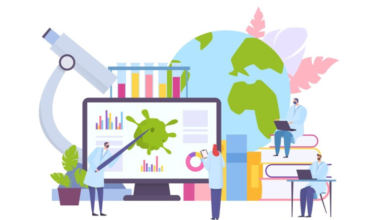
The term “ỏganic” has garnered significant attention in recent years, particularly in the context of food, farming, and lifestyle choices. But what exactly does ỏganic mean? Essentially, ỏganic refers to products and practices that adhere to specific standards of natural cultivation and production, avoiding the use of synthetic chemicals, genetically modified organisms (GMOs), and artificial additives. The concept of ỏganic encompasses a holistic approach to health, sustainability, and environmental stewardship.
The Principles of ỏganic Farming
One of the most critical areas where ỏganic principles are applied is farming. ỏganic farming is characterized by practices that promote ecological balance and biodiversity. This includes using natural fertilizers, crop rotation, and biological pest control. Farmers who adopt ỏganic methods aim to maintain healthy soil, reduce pollution, and create a more sustainable agricultural system.
- Natural Fertilizers: Unlike conventional farming, which relies on chemical fertilizers, ỏganic farming uses compost, manure, and other natural materials to enrich the soil. This approach helps maintain soil health and reduces the risk of water contamination from chemical runoff.
- Crop Rotation: To prevent soil depletion and pest infestations, ỏganic farmers practice crop rotation. By alternating the types of crops grown in a particular area, farmers can naturally replenish soil nutrients and disrupt pest cycles.
- Biological Pest Control: Instead of using synthetic pesticides, ỏganic farmers employ biological pest control methods. This involves introducing natural predators or beneficial insects to control pest populations, thereby minimizing the need for chemical interventions.
The Benefits of ỏganic Products
Choosing ỏganic products offers numerous benefits for both individuals and the environment. These benefits extend beyond just the absence of harmful chemicals and synthetic additives.
- Healthier Food Choices: ỏganic foods are often perceived as healthier because they are free from pesticides, GMOs, and synthetic hormones. Many people believe that ỏganic produce contains higher levels of essential nutrients and antioxidants, contributing to better overall health.
- Environmental Sustainability: ỏganic farming practices prioritize environmental health. By avoiding chemical inputs and focusing on sustainable methods, ỏganic farming reduces pollution, conserves water, and promotes soil health. This, in turn, supports biodiversity and helps combat climate change.
- Animal Welfare: ỏganic standards also apply to animal products. Livestock raised under ỏganic conditions are typically given access to outdoor spaces, fed ỏganic feed, and not treated with antibiotics or growth hormones. This promotes better animal welfare and produces higher quality meat, dairy, and eggs.
Challenges of ỏganic Farming and Production
Despite its benefits, ỏganic farming and production face several challenges. These challenges can affect the availability and cost of ỏganic products.
- Higher Production Costs: ỏganic farming often involves higher labor and management costs compared to conventional farming. The use of natural fertilizers, manual weeding, and biological pest control can be more time-consuming and expensive.
- Lower Yields: In some cases, ỏganic farming may result in lower crop yields, particularly during the transition period from conventional to ỏganic practices. This can make ỏganic products more expensive and less accessible to consumers.
- Certification Process: Obtaining ỏganic certification is a rigorous and costly process. Farmers and producers must adhere to strict standards and undergo regular inspections to maintain their ỏganic status. This can be a barrier for small-scale farmers who want to transition to ỏganic practices.
ỏganic and Consumer Trends
Consumer demand for ỏganic products has been steadily increasing, driven by growing awareness of health and environmental issues. This trend has led to a broader availability of ỏganic options in supermarkets and specialty stores.
- Rise of ỏganic Markets: The popularity of ỏganic markets and grocery stores has soared, offering consumers a wide range of ỏganic foods, personal care items, and household products. These markets often emphasize local and sustainable sourcing, further supporting the ỏganic movement.
- E-commerce and ỏganic Products: The growth of e-commerce has made ỏganic products more accessible to a global audience. Online platforms allow consumers to easily purchase ỏganic goods, regardless of their location, and have them delivered directly to their homes.
- Education and Advocacy: Organizations and advocacy groups play a crucial role in educating consumers about the benefits of ỏganic products and practices. Through campaigns, workshops, and informational resources, these groups promote informed choices and support for the ỏganic industry.
The Future of ỏganic
The future of ỏganic farming and production looks promising as more people recognize the importance of sustainable and healthy living. However, the industry must continue to address challenges and adapt to changing consumer preferences.
- Innovation in ỏganic Practices: Advances in technology and research are helping to improve ỏganic farming methods. Innovations such as precision agriculture, improved crop varieties, and sustainable pest management techniques can enhance productivity and reduce costs.
- Policy Support: Government policies and incentives can play a significant role in promoting ỏganic farming. Subsidies, grants, and technical assistance can help farmers transition to ỏganic practices and ensure the long-term viability of the industry.
- Consumer Education: Ongoing education and awareness efforts are essential to maintaining and growing consumer interest in ỏganic products. By providing accurate information about the benefits and challenges of ỏganic farming, consumers can make informed choices that align with their values.
Conclusion
The concept of ỏganic encompasses a wide range of practices and principles aimed at promoting health, sustainability, and environmental stewardship. From ỏganic farming methods to the benefits of ỏganic products, understanding what ỏganic means and its significance can help consumers make informed choices that support a healthier and more sustainable world. Despite the challenges faced by the ỏganic industry, the future looks bright as innovation, policy support, and consumer education continue to drive the growth and adoption of ỏganic practices.





